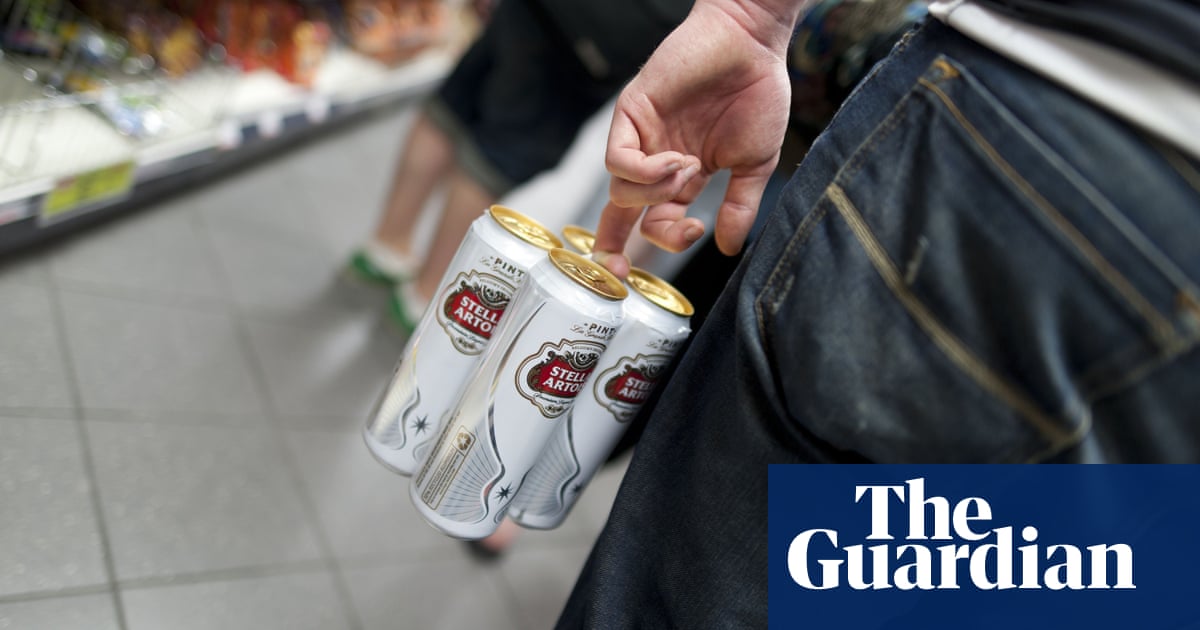- Social Experiment
- Posts
- Driving Towards an Inevitable Future
Driving Towards an Inevitable Future
Welcome back to Social Experiment, a newsletter about sobriety from a cultural lens.
Today is an exciting day. We’re launching our inaugural cohort for August.
Our MVP is designed to provide support and accountability to help you get and stay sober… or, drink less.
We’ve brought together an amazing group of people from all over the world and I can’t wait to kick things off tonight.
We’ve opened sign-ups for our September cohort, so if you’re interested in joining August last minute or getting added to our program next month, reply to this email and let us know. 👋
If you’re reading this and you’re already an Edge Health member, thank you for trusting us and being apart of the earliest days. 🙏
Don’t just take my word for it. Here’s a note from our community:

Now, let’s dive right in to discuss the policy changes that we’ve been seeing around the world that lead me to believe this space will have explosive growth over the next decade.
Here are a few medical breakthroughs that have been released over the past few years:
The Canadian Center on Substance Use and Addiction states that no amount of alcohol is safe
World Health Organization declared last year that no amount of alcohol is safe for one’s health
The American Cancer Society came out against any drinking, because any alcohol is associated with an increased risk of 7 different types of cancer
The Center for Disease Control and Prevention recommends that if you do choose to drink, don’t exceed more than 2 drinks/day
A study funded by Bill & Melinda Gates foundation found only risks, zero benefits, for young people to consume alcohol (ages 15-39 years old).
For decades, studies have suggested that moderate drinking is good for your health. They claimed it was better for your health than not drinking at all, and that non-drinkers died earlier compared to moderate drinkers.
A new study analyzed this that there are no health benefits of moderate drinking. Researchers looked at over 40 years of scientific studies, 107 studies total with ~5M participants. They found many of those studies were flawed, and the opposite was true. Many studies were funded by the alcohol industry.
Moderate drinking increases the risk of dying early. Moderate can be defined as >2 drinks/day.
They compared moderate drinkers to non-drinkers, but many of the non-drinkers were former “problem drinkers” or they were people who stopped drinking because they had health problems.
All of this to say, I am excited to see more research and public policy catching up to what we’ve known all along, that the availability and prominence of drinking in our culture is not our fault as consumers, however it’s our responsibility to understand the risks that drinking has on our health and act accordingly.
If you choose to drink, I hope you are well informed as with anything else we put into our bodies or consume in excess.
the future is non alcoholic.
— Brooke LeBlanc (@brookeleblanc)
9:31 PM • Oct 20, 2021
I’ve subscribed to the belief that the future is non-alcoholic for a few years now, and one of the strongest data points to back this up is that Ireland is the first country in the world to require alcoholic beverages to display health warnings.
The Irish government says this measure, cleared by EU and WTO regulators, will be enforced May 2026 — three years from the date that Prime Minister Stephen Donnelly signed into law the Public Health (Alcohol) (Labelling) Regulations Act. This will “respect consumers right to know.”
As you can expect, commercial operators fought back with industry warnings (winemakers, brewers and distillers) however were unsuccessful due to a mountain of medical evidence supporting Ireland’s Minister of State for Public Health and Drugs Strategy. Nothing like a great underdog story. A win for the people!
The plot thickens, and as we approach 2026 we will see what other countries have followed suit and how this affects Ireland’s economy.
According to Politico, “Ireland’s lobbyist for the drinks industry, Drinks Ireland, warned some EU producers of alcoholic beverages would likely stop supplying Ireland-based retailers because they wouldn’t produce goods with packaging unique to the Irish market.”
The Irish regulations will apply in all places where alcoholic drinks are sold, which includes labels on bottles and signs behind bars displaying warnings at pubs.
Ireland was also the first nation to ban smoking in enclosed public places back in 2004. Ireland is trailblazing in the area of public health legislation, and taking action to show their commitment to reducing preventable disease.
This movement feels eerily similar to how businesses and government policy turned the tide against smoking cigarettes/tobacco products similar to how in 2014, CVS controversially banned all tobacco products from their 7,600 pharmacy stores and 800 medical clinics nationwide. Larry Merlo, President and CEO, stated “Put simply, the sale of tobacco products is inconsistent with our purpose.”
At the time, they were the largest pharmacy in the US based on total prescription revenue. They were taking an initial annual loss of $2B from tobacco shoppers.
Their decision led to 100M fewer packs being sold in the first year since their removal, and have pivoted to contribute resources towards a more recent phenomenon, e-cigarettes and vaping.
Health and Human Services Secretary Kathleen Sebelius put it best; [We’re helping to bring] our country closer to achieving a tobacco-free generation.”
They focused on educating consumers and providing alternatives to reduce demand for tobacco products.

Image source: My dinner menu last night. See Bottom Right
At the very least, the decision caused shoppers to pause and ask, “Why isn’t my CVS selling cigarettes anymore?”
Merlo was cited saying that people who purchased cigarettes exclusively from CVS were ~38% more likely to stop buying cigarettes altogether. They kept hearing the phrase “When you quit, I quit.“
One of the most frequently asked questions I get around sobriety is how to transition from drinking less to going sober.

Image source: Open
“The person who carefully designs their daily routine goes further than the person that negotiates with themselves every day.”
People do not decide their futures. They decide their habits, and their habits decide their futures.
It’s common to mistake the interest in sobriety as a trend instead of a generational shift in consumer behavior.
It’s not a matter of if this will become a global cultural shift away from drinking alcohol — it’s a matter of when.

Image source: Edge Health
I hope this newsletter was able to inform, educate and inspire you to make the best decision for you.
See you next week.




Reply